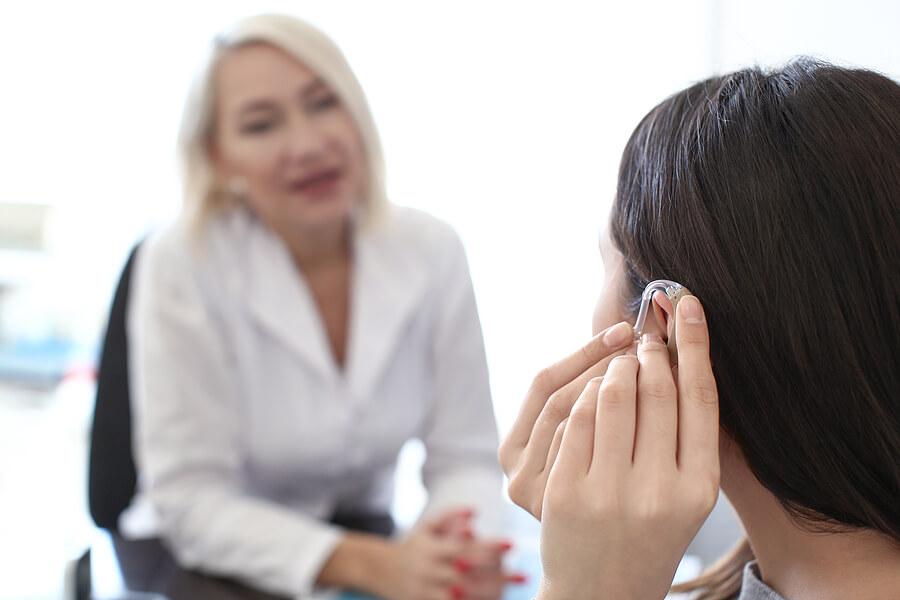Humid climates can be a challenging environment for your hearing aids. Moisture, heat, and humidity can pose unique concerns when it comes to the care and maintenance of your hearing devices. Let’s take a closer look at the specific challenges of humid climates and what you can do to ensure your hearing aids stay in tip-top shape.
How Humidity Affects Your Hearing Aids
Humidity refers to the amount of water vapor present in the air. High humidity levels, typical in tropical and coastal regions, can impact your hearing aids in various ways:
- Moisture Damage: Excessive moisture can seep into the delicate electronic components of your hearing aids, causing malfunctions and shortening the life of your hearing aids.
- Oxidation: The metal parts of your hearing aids, such as batteries and contacts, can corrode in humid conditions, decreasing the life of your hearing aids.
- Sweat: Humid conditions often lead to increased perspiration, which can corrode the hearing aid’s components and damage the casing.
- Bacterial Growth: Humidity provides an ideal breeding ground for bacteria and molds, which can accumulate in your hearing aids.
- Discomfort: High humidity can lead to increased moisture or ear wax in your ears, causing discomfort and making it harder for hearing aids to stay in place.
Caring for Your Hearing Aids in Humid Climates
If you live in a humid climate or enjoy vacations in humid areas, taking the time to care for your hearing aids is important. With the right care and accessories, you can maintain your hearing aids and enjoy clear hearing. Here are some essential tips to protect and maintain your hearing aids in humid conditions.
Invest in Protective Accessories
Consider using protective covers specifically designed to shield your hearing aids from moisture. These covers are typically made from water-resistant materials and are available for various hearing aid styles. Some hearing aids come with sleeves or bands that help protect against moisture. If your hearing aids have these accessories, use them consistently.
Choose Water-Resistant Hearing Aids
If you live in a consistently humid climate or frequently engage in activities where your hearing aids might be exposed to moisture, consider investing in water-resistant hearing aids. These are designed to withstand humid conditions and can be worn even in the rain.
Store Properly
A dehumidifier case is a great way to maintain your hearing aids. Utilize dehumidifier cases for overnight storage to help remove moisture and keep your hearing aids dry. There are various types available, including electronic dehumidifiers and desiccant-based cases. When not in use, leave the battery door of your hearing aids open to allow air to circulate and moisture to evaporate.
Regular Cleaning
Daily cleaning is more important than ever if you live in a humid climate. Wipe down your hearing aids daily with a soft, dry cloth to remove moisture and prevent wax buildup. Be gentle when cleaning the microphone and receiver. Schedule regular deep cleaning appointments with your hearing care professional. They can clean and maintain your hearing aids, ensuring they remain in top working condition.
Stay on Top of Earwax Management
In humid conditions, earwax can be softer and more likely to enter your hearing aids. Regularly clean the outside of your ears and have your ear canals checked by a hearing health specialist. They can provide guidance on managing earwax and ensuring it doesn’t interfere with your hearing aids.
Carry Spare Batteries
Moisture can affect battery performance. Always carry spare batteries in a moisture-resistant case to ensure your hearing aids continue to function correctly. If you notice any signs of battery corrosion due to humidity, replace the batteries immediately.
Professional Maintenance and Support
Living in a humid climate or enjoying tropical getaways doesn’t mean you have to compromise on your hearing health. With the right precautions and regular care, you can ensure your hearing aids continue to function optimally.
If you’re concerned about your hearing aids, visit us for a thorough cleaning. Visiting your hearing health specialist for regular check-ups and maintenance can help you maintain your hearing aids, especially if you live in a humid climate. We’ll perform thorough inspections, clean your hearing aids, and address any issues related to moisture or corrosion.

